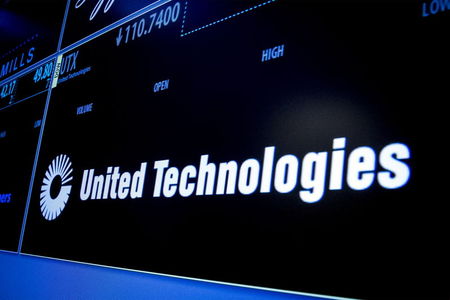By Mike Stone and Andrea Shalal
NEW YORK/WASHINGTON (Reuters) - Companies that provide the U.S. government with services ranging from air traffic management and data analytics to janitors and trainers for military dolphins are increasingly trying to find buyers for those businesses as cuts in public spending erode profit margins.
Showing growing impatience with a declining sector, Lockheed Martin Corp (N:LMT) said earlier this week that it plans to sell or spin off information technology and services businesses that generate $6 billion a year in revenue.
L-3 Communications Holdings Inc (N:LLL), BAE Systems Plc (L:BAES), Vencore Inc, SRA International Inc and Novetta Solutions are among the companies that have been running auctions in recent months to sell either their government services units or themselves, people familiar with the matter have told Reuters.
Representatives for L-3, BAE and SRA declined to comment. Vencore and Novetta did not immediately return a request for comment.
Underpinning these asset sales is a belief that only size can offset a decline in margins caused by the need to compete for fewer and less well paying government contracts. Buyers also see some hope that government spending cuts may be leveling off.
"There is a major portfolio consolidation under way in the professional services market," said Jim McAleese, a Virginia-based defense consultant. "It is being driven by scale. You have to have revenues of at least $3 billion to $4 billion to be cost competitive in the market."
Congress set up the automatic budget cuts in 2011, known as 'sequesters,' with the burden falling equally on military and domestic programs, to force politicians to agree on more targeted savings.
As a result, the market for government contract services peaked at $338 billion in fiscal 2010 and fell each of the next three years before edging slightly higher to $281 billion in fiscal 2014, according to the Professional Services Council, a Washington-based trade group.
Though some sectors are growing, such as cybersecurity and intelligence, more commoditized services, such as facilities management and construction, are becoming more competitive and less lucrative.
Industry executives said Lockheed had long prided itself on being the No. 1 provider of IT services to the federal government, but its product lines were a far larger focal point now, particularly given the increased focus of shareholders on profitability.
"It's all about the margins now," said one executive who was not authorized to speak publicly. Lockheed Chief Executive Marillyn Hewson told analysts on Monday that Lockheed's decision to announce the strategic review simultaneously with the $9 billion acquisition of Sikorsky Aircraft, the largest maker of military helicopters, should quell concerns raised by other industry players about the company's size and its ability to exercise "undue influence" in the market.
The market for lower-margin government services, however, is highly fragmented. This means it is unlikely any of the companies seeking to gain scale through acquisitions will become big enough to pose antitrust concerns, industry experts said.
POTENTIAL BUYERS
Potential buyers for the government service assets or companies for sale include Leidos Holdings Inc (N:LDOS), CACI International Inc (N:CACI), ManTech International Corp (O:MANT), Science Applications International Corp (N:SAIC), and Booz Allen Hamilton Holding Corp (N:BAH), according to industry sources who spoke on condition of anonymity because they were not authored to speak to the media.
Representatives for Booz and SAIC declined to comment while representatives for CACI, ManTech, Leidos did not immediately respond to requests for comment.
Private equity firms are also looking to cash out on their services businesses because valuations are recovering as government spending begins to stabilize.
Government services provider SRA International, for example, owned by private equity firm Providence Equity Partners LLC, is pursuing a sale process, Reuters reported in June. That sale could fetch as much as $2 billion, people previously told Reuters.
To be sure, not all auctions for the assets have proved successful. Computer Sciences Corp (N:CSC) is now being split into two parts, one focused on commercial services work and a second unit focused on the government services sector, after an effort to sell the government services unit didn't work out.
General Dynamics Corp (N:GD) and Northrop Grumman Corp (N:NOC) also have services businesses that have struggled, but they are not expected to sell those units at this time, the sources said. Both companies declined to comment.
Boeing Co (N:BA) has already sold off some of its cybersecurity business, and is unlikely to take further action in the short term, while Raytheon Co (N:RTN) is still digesting its recent $1.9 billion acquisition of WebSense, the sources said.
Boeing and Raytheon representatives declined to comment.
